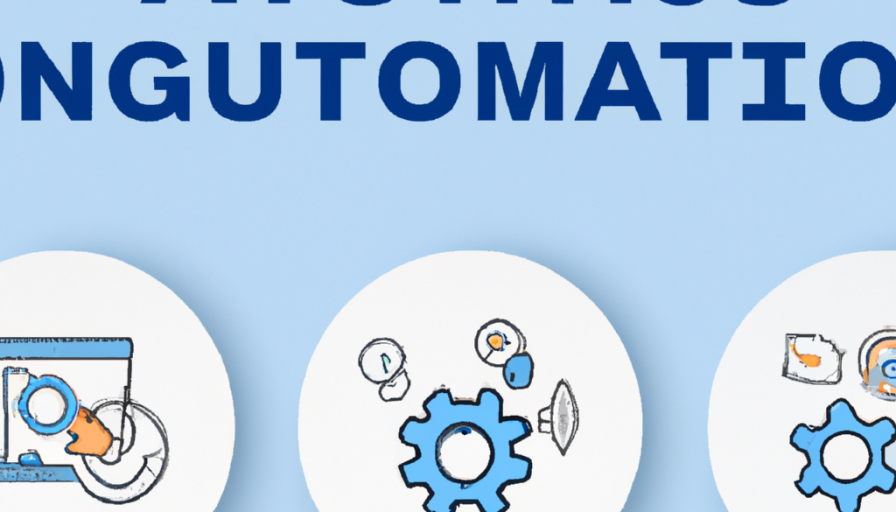AI Business Process Automation
Artificial Intelligence (AI) has revolutionized numerous industries, and business process automation is no exception. In this modern era, organizations are constantly seeking ways to streamline their operations, reduce costs, and enhance efficiency. AI-based automation solutions offer immense potential to achieve these goals, enabling businesses to optimize their processes, improve decision-making, and drive overall growth.
Understanding AI Business Process Automation
AI business process automation involves the application of intelligent algorithms and machine learning techniques to automate and optimize various tasks and workflows within an organization. It empowers businesses to automate repetitive and time-consuming processes, freeing up valuable human resources to focus on more strategic activities. By leveraging AI technologies, organizations can achieve a higher level of productivity, accuracy, and agility.
Benefits of AI Business Process Automation
Implementing AI business process automation brings several significant advantages to organizations:
1. Increased Efficiency and Productivity
AI-powered automation eliminates manual intervention in various processes, reducing errors and saving time. Repetitive tasks, such as data entry, document processing, and inventory management, can be seamlessly automated, enabling employees to concentrate on more complex and value-added activities. This improvement in efficiency leads to enhanced productivity and resource utilization.
2. Enhanced Accuracy and Consistency
Human errors are an inherent part of manual processes. By leveraging AI, businesses can ensure greater accuracy and consistency in their operations. AI algorithms can perform tasks with precision, minimizing the chances of errors and inconsistencies caused by human factors. This not only improves the quality of work but also reduces costly mistakes that can impact business outcomes.
3. Cost Savings
With AI business process automation, organizations can significantly reduce costs associated with manual labor. By automating repetitive tasks, businesses can reduce the need for additional workforce and reallocate resources to more strategic areas. Additionally, automation helps minimize errors, rework, and associated costs, resulting in overall cost savings.
4. Improved Decision-making
AI-driven automation provides businesses with access to real-time data insights and analytics. This enables more informed and data-driven decision-making, as AI algorithms can analyze vast amounts of data quickly and accurately. With actionable insights at hand, organizations can make smarter decisions, optimize processes, and drive continuous improvement.
5. Scalability and Flexibility
AI automation solutions are highly scalable, allowing businesses to adapt to changing needs and volumes effortlessly. As the organization grows, the automation framework can be easily expanded to accommodate increased workloads. Moreover, AI systems can be customized to cater to specific business requirements, ensuring flexibility and adaptability in a dynamic business environment.
6. Customer Satisfaction and Experience
With AI-driven automation, organizations can enhance customer satisfaction and experience. By automating customer support processes, businesses can provide round-the-clock assistance, improve response times, and personalize interactions. This not only enhances customer satisfaction but also leads to increased customer loyalty and retention.
AI Business Process Automation in Practice
Various industries are leveraging AI business process automation to optimize their workflows and operations. Here are a few examples:
1. Finance and Accounting
Financial institutions are adopting AI automation to streamline processes such as invoice processing, financial reporting, fraud detection, and risk assessment. AI algorithms can analyze financial data, identify anomalies, and generate accurate reports, enabling organizations to make data-driven decisions quickly.
2. Supply Chain and Logistics
AI-powered automation is revolutionizing supply chain and logistics operations. From demand forecasting and inventory management to route optimization and last-mile delivery, AI algorithms can intelligently automate these processes, reducing costs, improving efficiency, and ensuring timely deliveries.
3. Human Resources
AI automation is transforming HR functions, including recruitment, employee onboarding, and performance management. Intelligent algorithms can analyze candidate profiles, match skills with job requirements, automate paperwork, and provide data-driven insights for performance evaluation, enabling HR departments to operate more efficiently.
4. Healthcare
In the healthcare sector, AI automation is utilized for medical image analysis, patient diagnostics, and appointment scheduling. Machine learning algorithms can analyze medical images to identify potential issues, assist in diagnosis, and recommend appropriate treatment plans. This not only improves patient care but also reduces the burden on healthcare professionals.
Conclusion
AI business process automation offers immense potential for organizations seeking to optimize their operations and drive growth. By leveraging AI technologies, businesses can achieve increased efficiency, accuracy, and cost savings. Moreover, AI-driven automation enables better decision-making, enhances customer satisfaction, and improves overall business outcomes. Embracing AI business process automation is crucial for organizations to stay competitive in today’s fast-paced and technology-driven business landscape.


